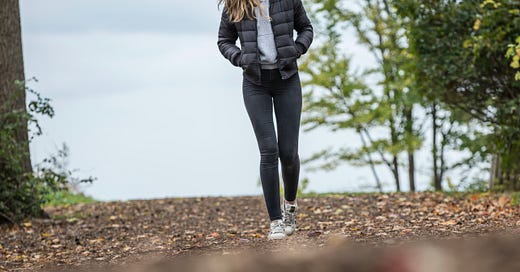How walking provides mental detachment from work, relaxation and creativity
Last week, I wrote about research by German psychologist and recovery expert Sabine Sonnentag. Together with her colleagues, she found four major factors of true recovery: mental detachment from work, relaxation, control, and mastery experiences.
Walking is one of the quickest, easiest and cheapest ways to get the first two. As a bonus, it’s a great way to solve problems in both our professional and private life creatively. Here’s why.
First, walking provides mental detachment from work. Whether you work in an office, from home or elsewhere, walking provides a change of scenery. Wherever you work, walking takes you away from places that your brain associates with it. Unsurprisingly, not carrying your office in your back pocket is crucial for mental detachment while walking. That’s another reason for ridding your biggest weapon of mass distraction of work-related stressors.
Second, walking enables relaxation because it calms us down. How this works is fascinating. Walking is one way of getting into self-generated forward motion. That puts us into what researchers call “optic flow” – meaning visual images passing us by as we wander along. As it turns out, the eye movement associated with “optic flow” decreases activity in the amygdala – the brain region primarily associated with feelings of fear, threat, and anxiety.
Third, walking triggers unconscious thought on things that are complex, interesting, or important to the thinker. By taking a walk, we can purposefully spark those sudden flashes of inspiration that most of us have experienced when taking a shower or brushing our teeth. That’s why walking is a great way to solve problems in both our professional and private life creatively.
Interestingly, researchers are not yet sure why walking makes us creative. In his book “Rest”, Alex Pang quotes Marily Oppezzo, one of the authors of a widely cited article on the effects of walking on creativity: „It could be mood, or maybe walking takes just enough focus that it lets seemingly irrelevant possibilities come to the forefront,” Oppezzo says; or maybe walking “just allows more ideas to bubble up.“
Want to take up walking for recovery? In next week's post, I’ll delve deeper into how to walk for detachment, relaxation, and creativity when you’re short on leisure time.
If you liked this post, please share it with others:
Until next week,
Christian




